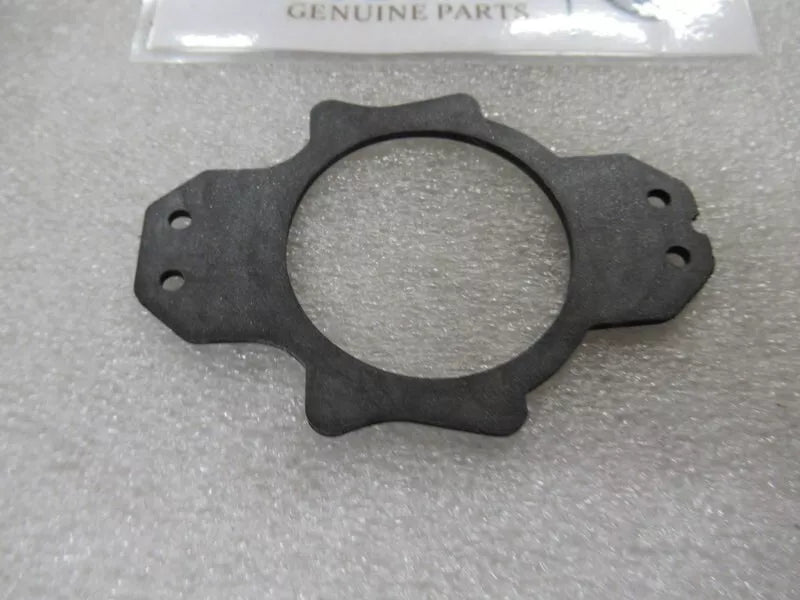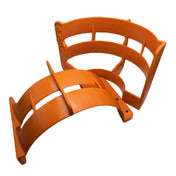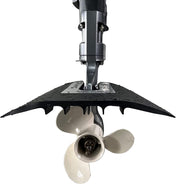Tonotopic Organization Research – Scientific Review (Replaces 14718671)
Tonotopic Organization Research – Scientific Review (Replaces 14718671) is backordered and will ship as soon as it is back in stock.
Couldn't load pickup availability
Worry-free returns
Worry-free returns
You may return most new, unopened items within 7 days of delivery for a full refund. We'll also pay the return shipping costs if the return is a result of our error (you received an incorrect or defective item, etc.).
You should expect to receive your refund within four weeks of giving your package to the return shipper, however, in many cases you will receive a refund more quickly. This time period includes the transit time for us to receive your return from the shipper (5 to 10 business days), the time it takes us to process your return once we receive it (3 to 5 business days), and the time it takes your bank to process our refund request (5 to 10 business days).
If you need to return an item, simply login to your account, view the order using the "Complete Orders" link under the My Account menu and click the Return Item(s) button. We'll notify you via e-mail of your refund once we've received and processed the returned item.
Delivery and Shipping
Delivery and Shipping
Free standard shipping on all orders under 1 KG
Product Details
This listing is for the scientific review titled Tonotopic Organization Research – Scientific Review, a foundational research paper published in 2004. This study examines the critical role that correct tonotopic representation—the spatial arrangement of frequency processing in the auditory system—plays in the perception of complex pitch. It was originally published in the Proceedings of the National Academy of Sciences.
This paper is a direct replacement for and alternately identified by PNAS 101(5):1421-5, DOI:10.1073/pnas.0306958101, and PMC ID: PMC337068.
- Examines how spatial frequency organization in the auditory system impacts perception.
- Provides psychoacoustic evidence for the place theory of hearing.
- Fully open access for review and citation via PubMed Central (PMC).
Research Context and Findings
The paper "Correct tonotopic representation is necessary for complex pitch perception" investigates how the brain's spatial organization of frequency processing (tonotopy) affects our ability to perceive complex sounds. Key findings include:
- Tonotopy begins at the cochlea, where different regions of the basilar membrane vibrate at different frequencies.
- This spatial organization projects through the vestibulocochlear nerve to the primary auditory cortex.
- The study demonstrates that proper tonotopic organization is essential for accurate pitch perception.
- Disruptions in tonotopic mapping can significantly impair the ability to process complex sounds.
- The research provides critical evidence supporting the place theory of hearing.
Related Scientific Research
This matrix outlines related fields of study that inform or are informed by the principles of tonotopic organization.
| Research Area | Key Concepts | Relation to Tonotopy | Year Range |
|---|---|---|---|
| Cochlear Function | Basilar membrane vibration, hair cell response | Foundation of tonotopic organization | 1960–present |
| Auditory Cortex Mapping | Frequency gradient organization, tonotopic maps | Neural representation of tonotopy | 1990–present |
| Pitch Perception | Complex sound processing, harmonics | Dependent on tonotopic organization | 1980–present |
| Auditory Critical Periods | Developmental plasticity, tone exposure | Formation of tonotopic maps | 1990–present |
| Adult Auditory Plasticity | Neuromodulatory influences, behavioral training | Modification of tonotopic maps | 2000–present |
Technical Specs
- Product Type
- Scientific Research Paper
- Authors
- Andrew J. Oxenham, Joshua G. Bernstein, Heithem Penagos
- Publication
- Proceedings of the National Academy of Sciences of the United States of America
- Volume/Issue
- Vol. 101, No. 5
- Pages
- 1421-1425
- Publication Date
- February 2004
- DOI
- 10.1073/pnas.0306958101
- PMC ID
- PMC337068
- PMID
- 14718671
- Research Focus
- Tonotopic representation, complex pitch perception
- Methodology
- Psychoacoustic experiments
- Subject
- Auditory system, cochlear function
- Keywords
- Tonotopy, pitch perception, auditory cortex, cochlea
- Open Access
- Yes (via PMC)
- Dimensions (in)
- Height: 5.13; Width: 4.0; Length: 1.13
What’s in the Box
- Single scientific paper (digital access)
Accessing the Paper
This is a digital product. Upon purchase, you will receive information to access the full text of the paper. You can locate and verify the publication using its unique identifiers, such as the DOI (Digital Object Identifier) or PMC ID, on academic databases like Google Scholar, PubMed, or directly at the publisher's website.
Troubleshooting & FAQ
What is the main topic of this paper?
The paper investigates how the spatial mapping of frequencies in the auditory system, known as tonotopy, is essential for our ability to perceive complex pitch.
How can I access the full text of this paper?
This paper is available via Open Access through PubMed Central (PMC). You can find it by searching for its PMC ID: PMC337068 or its DOI: 10.1073/pnas.0306958101.
What did the research find?
The study demonstrated that a correct and orderly tonotopic map in the auditory system is necessary for accurate complex pitch perception, providing strong evidence for the place theory of hearing.
Is this the original publication?
This listing provides access to a scientific paper originally published in the Proceedings of the National Academy of Sciences. It is an authentic copy, not a summary or an aftermarket version.
Shipping speed & cost
We deliver access details worldwide quickly—typical transit for digital goods is instant. Standard delivery is free.
Warranty & returns
Due to the digital nature of this product, all sales are final. If you have trouble accessing the paper, please contact our support team with your order details for assistance.
Safety & Important Info
- Verify the publication details (DOI, PMID, authors) against your citation requirements before use. If anything differs, do not use it for citation.
- This is a digital listing for a scientific paper, not a physical component.
- A foundational understanding of auditory neuroscience or psychoacoustics is recommended for a full comprehension of the paper's content.
About Sea Sierra
- Pro-Grade Standards — We supply marine parts engineered to OEM-level tolerances and tested for real-world conditions.
- Fast Global Fulfillment — Free standard delivery to most regions in 5–15 days.
- Manufacturer-Direct Value — Fair pricing without compromising on materials or QC.
Payment & Security
Payment methods
Your payment information is processed securely. We do not store credit card details nor have access to your credit card information.










